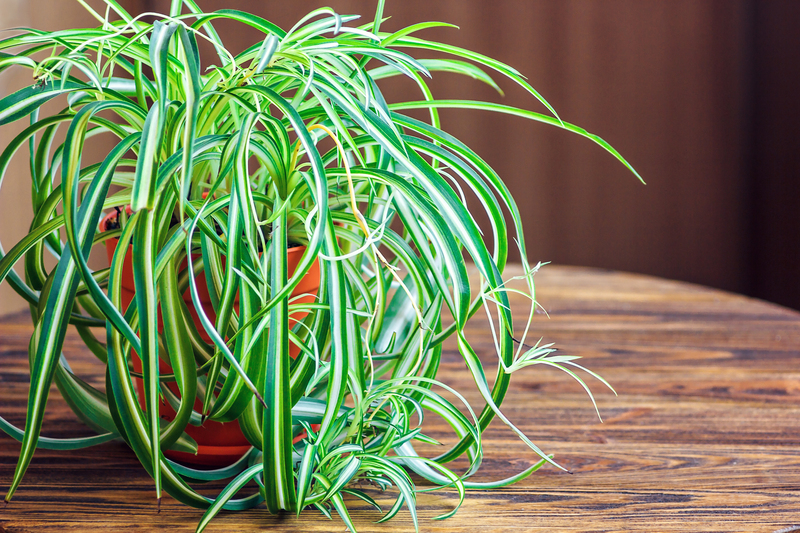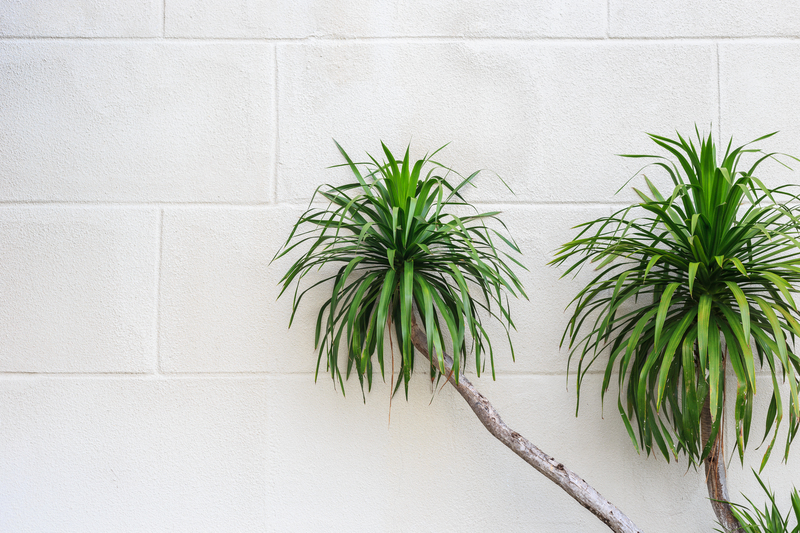Discover Budget-Friendly Ways to Simplify Gardening
Posted on 17/06/2025
Discover Budget-Friendly Ways to Simplify Gardening
Gardening doesn't have to be an expensive or overwhelming hobby. With a little creativity and strategic planning, simplifying your garden on a budget is entirely possible. Whether you're a beginner or an experienced gardener, every homeowner, renter, or community plot owner can benefit from implementing cost-effective gardening techniques. In this comprehensive guide, we'll explore budget-friendly ways to simplify gardening, making it more enjoyable and accessible for all.
Why Simplify and Save in the Garden?
Taking a streamlined, cost-effective approach to gardening offers a multitude of benefits:
- Save Money on supplies, utilities, and plant costs
- Minimize Time Commitment with simple maintenance methods
- Reduce Stress by avoiding overcomplicated setups and clutter
- Ensure Sustainability through eco-friendly, low-waste practices
Gardening on a budget means more than just pinching pennies; it also means making your gardening routine more manageable, enjoyable, and sustainable.

Clever and Inexpensive Garden Planning
1. Start Small and Scale Up
One of the easiest, most affordable gardening tips is to begin with a small, manageable garden space. You can always expand later as your confidence and experience grow.
- Use containers, raised beds, or a few well-chosen ground plots
- Focus on easy-to-grow plants like salad greens, herbs, or cherry tomatoes
- Rotate crops seasonally to maximize space and harvests
2. Plan Your Garden Layout Carefully
Thoughtful garden design helps maximize productivity and keeps costs down. Consider:
- Companion planting to boost yields and naturally deter pests
- Planting in blocks or intensive rows (instead of single rows) for efficient space usage
- Growing vertically--use trellises, fences, and stacked pots to increase growing area without extra land
3. Create Planting Calendars
Stay organized and avoid overbuying seeds or plants. Make a planting calendar customized to your region. Use free online tools or local agricultural extension services for planting schedules.
Smart Sourcing: Grow More, Spend Less
1. Collect and Use Free Seeds
Instead of purchasing new seeds each season, try these cheap gardening hacks:
- Save seeds from your own vegetables and flowers
- Join community seed swaps or local gardening clubs
- Exchange seeds with friends, family, and neighbors
- Order free seed samples from gardening organizations or online giveaways
2. Propagate Plants for Free
Multiply your plants without spending a dime:
- Take cuttings from herbs, succulents, and shrubs
- Divide perennials such as hostas, daylilies, and irises
- Root basil, mint, and other herbs in water before potting up
- Ask neighbors if you can take divisions from their gardens when they thin out plants
3. Tap into Community Resources
Neighborhood gardening groups, local farms, and municipal compost sites are often treasure troves for affordable or even free resources like:
- Mulch and compost
- Starter plants
- Recycled or used gardening tools
- Knowledge and advice from seasoned home gardeners
Low-Cost Gardening Tools and Supplies
1. Reuse, Repurpose, and Recycle
Before you purchase expensive equipment, look for simple, budget-friendly alternatives at home:
- Convert milk jugs into watering cans or mini greenhouses
- Use egg cartons as seed trays
- Repurpose food containers as plant pots
- Turn old spoons into plant markers
- Reclaim pallets for raised beds or vertical gardens
2. Shop Smart for Essential Tools
If you need to buy new gardening tools, keep it basic. Look for:
- Sales at local hardware stores or nurseries
- Quality tools at secondhand stores or online marketplaces
- Community tool libraries for borrowing instead of buying
It's better to purchase a few durable, essential tools than to invest in specialized equipment that gathers dust.
3. DIY Garden Infrastructure
Create your own trellises, plant supports, and compost bins using simple materials like:
- Bamboo stakes
- Old ladders
- Chicken wire
- PVC pipes
- Lumber remnants
Check community online boards for people giving away excess construction materials or old furniture that can be repurposed.
Soil, Mulch, and Compost--On a Shoestring
1. Make Your Own Compost
Composting at home not only reduces household waste but also saves money on fertilizer and enhances soil health. To get started:
- Designate a corner for a simple compost heap or bin
- Add fruit and vegetable scraps, eggshells, grass clippings, and leaves
- Avoid meat, dairy, and oily foods in your compost
- Turn the pile regularly for aeration and faster decomposition
2. Free or Cheap Mulch Options
Mulching helps retain moisture, suppress weeds, and enrich soil. Affordable options include:
- Grass clippings (after mowing, if no pesticides were used)
- Shredded leaves
- Newspaper or cardboard (as a weed barrier)
- Wood chips from municipal recycling programs
3. Improve Soil Inexpensively
Testing your soil can be done through local cooperative extension services, which often offer low-cost kits. If you need amendments, instead of buying pricey bags, use:
- Coffee grounds from local cafes (many give them away free!)
- Eggshells for calcium
- Epsom salt for magnesium and sulfur
- Grass clippings or chopped leaves to boost organic matter
Simplifying Watering: Save Effort and Money
1. Water Early and Efficiently
Water your garden in the early morning to reduce evaporation and help plants absorb nutrients. Use these tips for more eco-friendly, hassle-free watering:
- Group plants with similar water needs together
- Install a rain barrel to collect free water
- Use a soaker hose or DIY drip system to minimize waste
- Mulch heavily to reduce watering frequency
Easy Maintenance to Streamline Tasks
1. Pick Low-Maintenance Plants
Choose robust, disease-resistant varieties suited to your climate. Popular and low-input choices include:
- Zinnias, marigolds, and sunflowers
- Herbs (basil, oregano, thyme, mint)
- Lettuce, Swiss chard, and radishes
- Native perennials or drought-tolerant succulents
2. Minimize Weeding with Smart Strategies
- Apply thick mulch to pathways and beds
- Plant ground covers to outcompete weeds
- Use landscape fabric under mulch in persistent trouble spots
- Weed after a rain, when roots come out easily
3. Automate Where Possible
- Set up inexpensive timers for watering
- Plant in dense blocks to shade out weeds and conserve water
Affordable Garden Pests and Disease Solutions
1. Natural Predators and DIY Remedies
Say goodbye to costly chemicals. Try these budget-friendly garden fixes:
- Encourage bird and ladybug visits for natural pest control
- Use neem oil, dish soap, or garlic spray for common pests
- Sprinkle diatomaceous earth around slug-prone plants
- Handpick larger pests (hornworms, beetles)
2. Employ Companion Planting for Pest Prevention
- Marigolds deter nematodes, aphids, and whiteflies
- Basil improves tomato yields and repels flies
- Nasturtiums attract and trap aphids away from crops
Community and Sharing: Grow Together and Save
1. Participate in Community Gardens
Joining a local community garden can minimize individual costs and provide access to established beds, tools, and an invaluable knowledge base. People often share seeds, plants, and tips, making gardening more affordable and fun.
2. Host Tool and Plant Swaps
Organize monthly or seasonal swaps where neighbors trade surplus plants, seeds, or hand tools. This cuts costs and reduces clutter.

The Benefits of Simplified, Low-Cost Gardening
There are countless rewards to embracing cost-effective gardening practices:
- Lower grocery bills thanks to homegrown produce and herbs
- Improved physical and mental well-being from outdoor activity
- Greater environmental sustainability with reduced resource consumption
- A sense of accomplishment and a thriving, beautiful space to enjoy
Conclusion: Enjoy Your Simplified, Affordable Garden
With these budget-friendly ways to simplify gardening, anyone can cultivate a lovely, productive garden space without straining their wallet or free time. From recycling everyday items and starting small, to tapping into community resources, the path to frugal and effective gardening is both practical and rewarding. Remember, your garden should bring you joy--not stress or financial burden.
Ready to get started? With a little ingenuity and these smart, simple gardening tips, you're well on your way to a lush, low-maintenance garden that grows health, savings, and happiness all season long.
Latest Posts
From Organic Clutter to Soil Enrichment
Handy Gardening Tools for Every Outdoor Connoisseur
Unlock the Potential of Your Hedges with Expert Trimming

